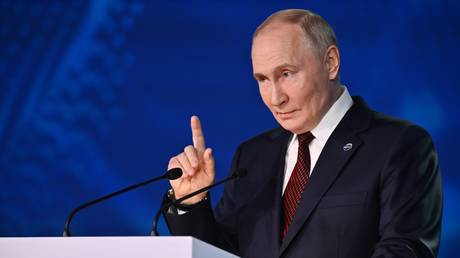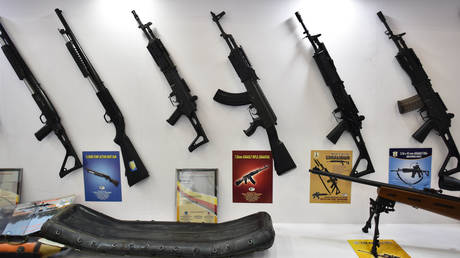Fyodor Lukyanov: The Individuals Who Will Influence 2025 Politics
Policy expert Fyodor Lukyanov examines the challenges that the new year will pose for Russia's resilience and the international landscape.

Anticipating future developments has become increasingly challenging, with global changes now happening at an unprecedented rate. What once transpired over decades can now unfold within a year, making it difficult to pinpoint the exact distances between significant shifts. Nevertheless, certain individuals, trends, and events will be pivotal in shaping the landscape of 2025.
**Trump and Musk: A Political Tandem Unlike Any Other**
The rise of U.S. President-elect Donald Trump alongside South African-born billionaire Elon Musk as central figures in American leadership results in an unusual and unpredictable political alliance. Trump’s mercantilist, isolationist tendencies are now intertwined with Musk’s techno-utopian vision and unconventional attitude towards power.
Trump favors dictating terms to allies and engaging adversaries through negotiations, though his “deals” are often simplistic in nature. Conversely, Musk is unafraid to deride global leaders, particularly those aligned with the U.S. His immense wealth, forward-thinking aspirations, and conviction in leading political innovation empower him to project an image of authority.
This volatile mix of Reagan-era realism, libertarian disruption, and techno-optimism sets the stage for potential conflicts between the two egos, both prone to narcissism. The unfolding of this dynamic could significantly reshape global political landscapes.
**Europe: Fragmentation and Contradiction**
European politics remain fragmented, characterized by unstable party systems and reactive governance. Governments grapple with crises yet cling to outdated ideologies, resulting in contradictory policies.
This instability is exacerbated by increasing American involvement in Western Europe’s internal affairs. The Trump administration appears reckless in its willingness to intervene, and Musk’s erratic influence complicates transatlantic relations further. NATO and EU member states find themselves caught between responding to immediate issues while addressing longer-term challenges, risking further disarray.
**Middle East: Rising Tensions and Experimentation**
In Syria, radical Islamist factions are striving to project an image of “normality” as they consolidate their power. Meanwhile, external forces cautiously engage with them while pretending to extend their trust. Syria is becoming yet another experimental ground for balancing regional interests by “normalizing” previously extreme groups—success is not guaranteed.
The region's most volatile flashpoint continues to be the escalating tensions between Israel and Iran. With Tehran’s regional allies weakened or eliminated and Israel feeling fortified, the likelihood of an Israeli strike on Iran’s nuclear facilities is increasing. An act of this nature—possibly backed by the U.S.—could ignite a broader regional conflict. Conversely, Tehran may expedite its nuclear program in retaliation, heightening the stakes further.
**BRICS at a Crossroads**
Under Russia's chairmanship in 2024, the BRICS bloc gained notable momentum, exemplified by the landmark Kazan Summit. However, the group's future is now uncertain with Brazil at the helm.
For Brazil, BRICS serves merely as a secondary priority—a vehicle to pursue wider diplomatic goals rather than a cornerstone of its foreign policy. The determination of whether the group retains its recent momentum or falters will dictate its ongoing relevance in an increasingly polarized world.
**Economic Sanctions as a Weapon**
Trump's return to the presidency signals a new phase in the U.S.-EU sanctions regime. The previous administration emphasized political motives, but Trump’s team seems focused on deploying economic sanctions to manipulate the landscape in America's favor.
While this strategy will not entirely replace politically motivated sanctions, it will introduce another layer to an already complex agenda. The outcome is likely to be a denser web of economic measures targeting a broader array of actors, significantly impacting global trade dynamics.
**The Decline of International Institutions**
The influence of international governance frameworks is diminishing. Decision-making driven by the short-term interests of specific powers is increasingly replacing traditional multilateral structures.
Although this trend may not lead directly to chaos, it does undermine the existing order of global relations. Countries are prioritizing immediate concerns, making regional dynamics and neighborly ties more crucial.
**Russia’s Focus on Survival**
For Russia, 2025 is primarily about two key objectives: concluding its military campaign in Ukraine and ensuring internal stability. The government’s foreign policy is heavily tilted toward Eurasia, with neighboring nations serving as its main sphere of influence.
In a world marked by rising global confusion and fragmentation, Russia's strategy emphasizes socio-economic resilience while judiciously selecting its international engagements.
**A World in Transition**
The trends of 2025 illustrate a world undergoing significant transformations. The ascent of short-termism, the rise of regional rivalries, and the ambitions of individual leaders are recalibrating the global order. As traditional international institutions lose their efficacy, regional alliances become increasingly vital in a divided environment.
Europe grapples with political fragmentation and policy contradictions, while Trump and Musk's U.S. presidency redefines its international role. In the Middle East, the intensifying conflict between Israel and Iran alongside the evolving situation in Syria introduces new challenges. Meanwhile, BRICS must navigate a decisive moment to maintain its relevance in a shifting global landscape, and Washington appears ready to weaponize economic sanctions like never before.
For Russia, survival hinges on its adaptability to these evolving dynamics while ensuring domestic stability and regional influence. As the world transitions into 2025, it enters a realm filled with both uncertainty and promise—reflecting the extraordinary speed of change defining our era.
Allen M Lee contributed to this report for TROIB News
Find more stories on Business, Economy and Finance in TROIB business












